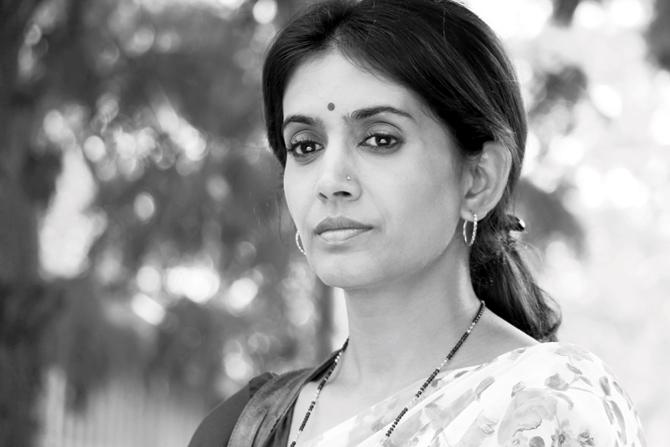Marathi cinema is often streets ahead of Bollywood, both in content and narrative treatment


Sonali Kulkarni in Kaccha Limbu
 Marathi cinema is often streets ahead of Bollywood, both in content and narrative treatment. Kaccha Limbu, that opened on Friday and starring Sonali Kulkarni, Ravi Jadhav and Sachin Khedekar, with the reputed actor Prasad Oak debuting as director, is another such. It is a powerful and courageous film dealing with the repressed sexual needs of a mentally disabled teenager, as well as those of his parents. In fact, the film deals with maturity and empathy when tackling big taboos, including a mentally challenged son who tries to make love to his mother, and a father who prepares to kill him. It is hard to imagine Bollywood having the courage and sensitivity to even attempt this as a key theme with the same finesse. Also, kudos to the censors for their emotional intelligence, not always in evidence.
Marathi cinema is often streets ahead of Bollywood, both in content and narrative treatment. Kaccha Limbu, that opened on Friday and starring Sonali Kulkarni, Ravi Jadhav and Sachin Khedekar, with the reputed actor Prasad Oak debuting as director, is another such. It is a powerful and courageous film dealing with the repressed sexual needs of a mentally disabled teenager, as well as those of his parents. In fact, the film deals with maturity and empathy when tackling big taboos, including a mentally challenged son who tries to make love to his mother, and a father who prepares to kill him. It is hard to imagine Bollywood having the courage and sensitivity to even attempt this as a key theme with the same finesse. Also, kudos to the censors for their emotional intelligence, not always in evidence.
ADVERTISEMENT
While Bollywood has a number of films on disability, it rarely addresses their sexual needs, let alone with courage and sophistication. Margarita with a Straw is one indie film that did; whereas in mainstream Bollywood, Sadma and Omkara are some of the few examples, while one 'technical kiss' in Black hardly counts. International films on the subject include Rolf de Heer's exquisite Dance Me To My Song, The Sessions, Gabrielle, and the documentary The Special Need.
Kaccha Limbu draws from Jaywant Dalvi's novel Runanubandh, which he also adapted into the play Natigoti. Shaila (Sonali Kulkarni) and Mohan Katdare (accomplished director Ravi Jadhav debuting as actor), struggle to raise their mentally challenged son Bachchu (Manmeet Pem). Fifteen years of this have taken their toll: their marriage is bloodless, so are their lives. The film is set in the 80s: Shaila has a day job, while Mohan works the night shift in the telegraph office, so between them, someone is always someone home to care for Bachchu. They live in a one-room kholi in a Mumbai chawl, with Bachchu sleeping on the floor and the parents on a cot in the same room; any attempted sex is always overhung with the terror of Bachchu waking up, as it must be for much of India.
Chinmay Mandlekar's otherwise nuanced screenplay has both parents go on dramatically divergent before chickening out, and ending tamely. The frustrated Mohan considers poisoning his innocent son, while Shaila starts a tentative affair with her sympathetic boss Pandit (Sachin Khedekar). Later, a masturbation scene ends crudely. But mostly, the film handles many troubling scenes with sensitivity, as when Shaila sleeps with a handy stick, after Bachchu tries to rape her. Sonali Kulkarni carries the film on her able shoulders, and Jadhav is competent, while Pem is excellent, playing with feral intensity when he smells his mother's perfume. We are never sure about the motives of the kindly Pandit, while Anant Mahadevan shines as Venkat. Amalendu Chaudhary's superb black and white photography is a big strength. The present is in black and white, with a few moments of joy from the past and the climax in colour: by excising distracting detail, he keeps the focus on its emotional core. Even if he occasionally falters between arthouse nuance and mainstream maudlin moments and loud music, Prasad Oak does a fine job of a poignant film.
Meenakshi Shedde is South Asia Consultant to the Berlin Film Festival, award-winning critic, curator to festivals worldwide and journalist. Reach her at meenakshishedde@gmail.com.
 Subscribe today by clicking the link and stay updated with the latest news!" Click here!
Subscribe today by clicking the link and stay updated with the latest news!" Click here!







